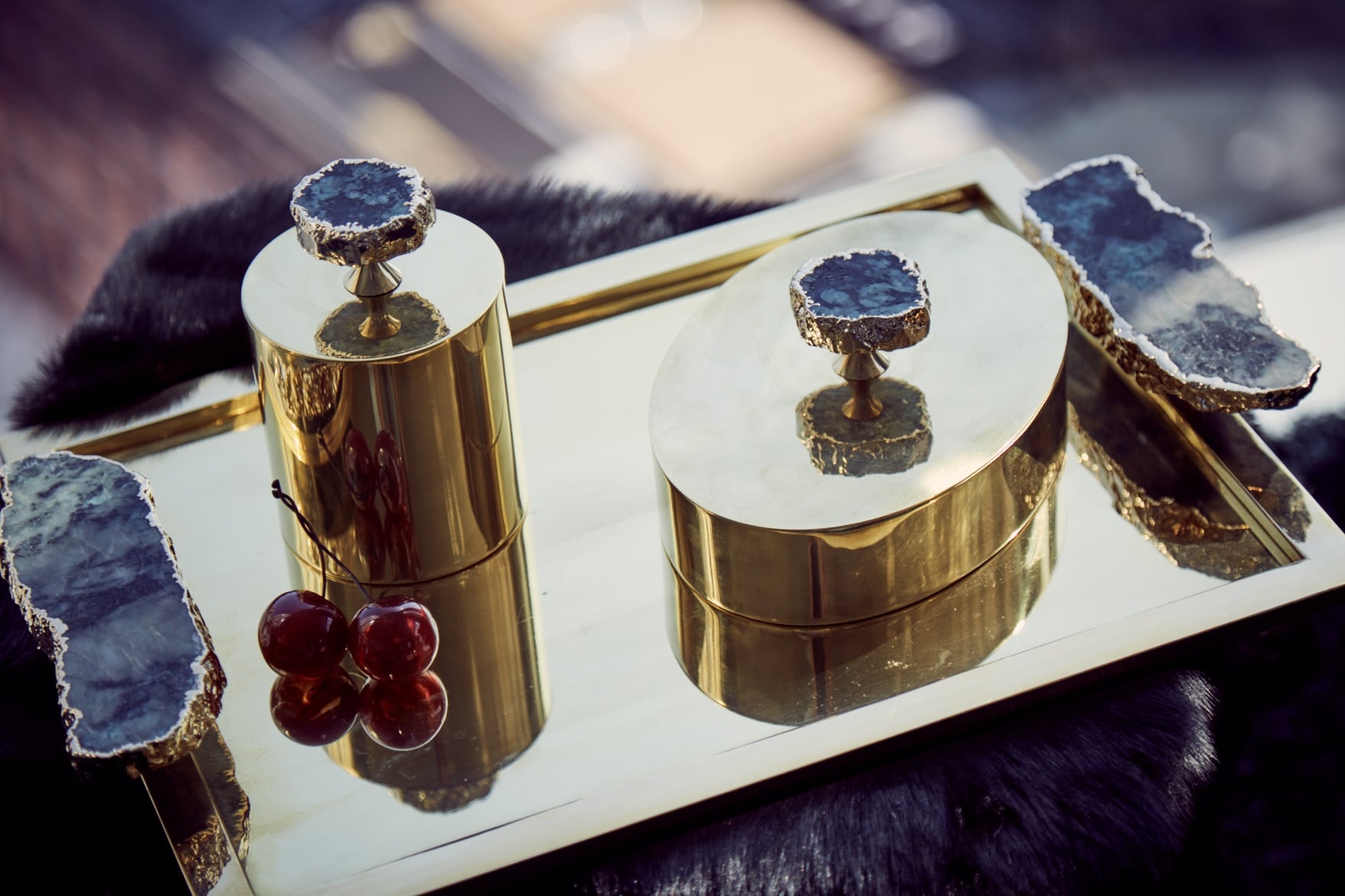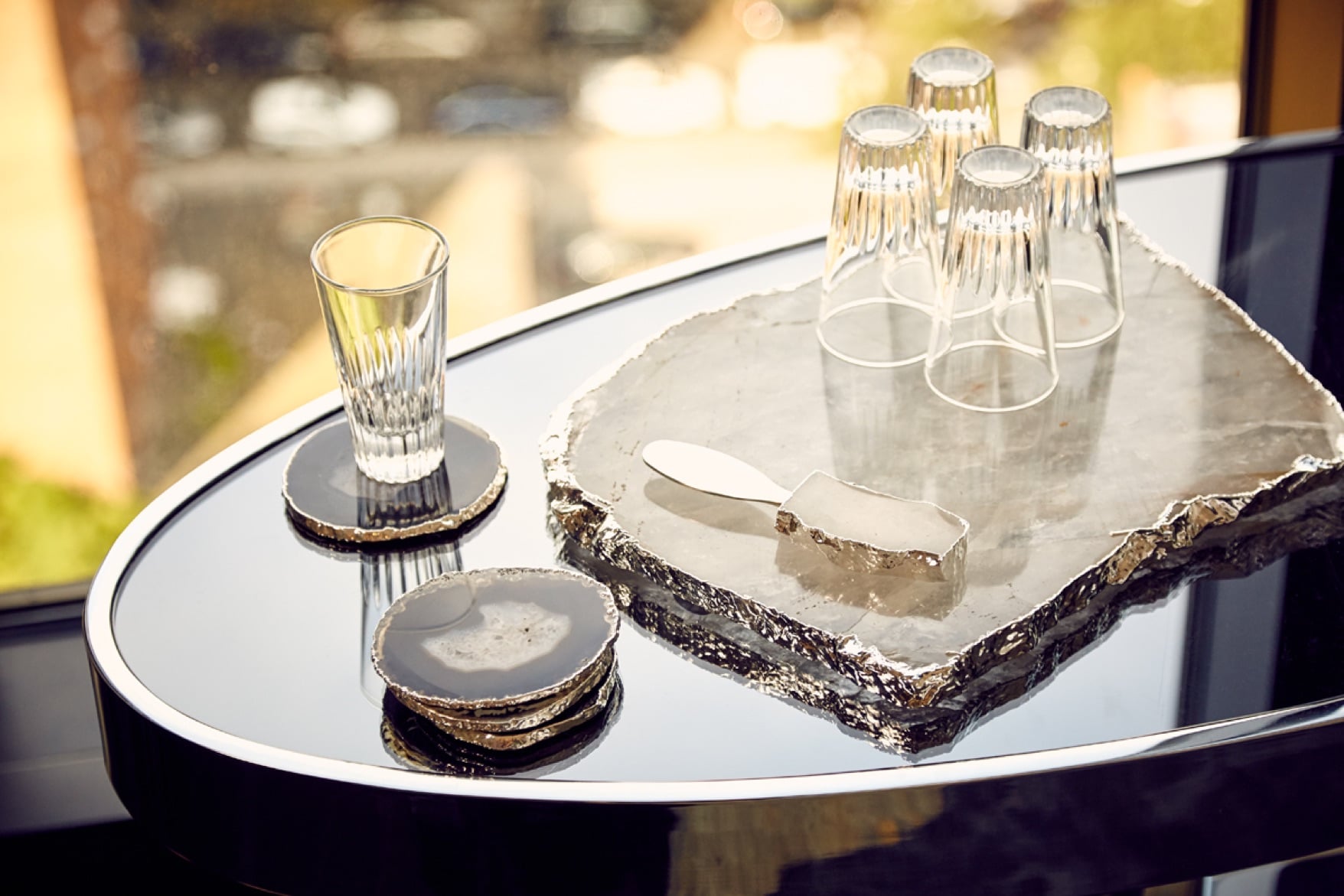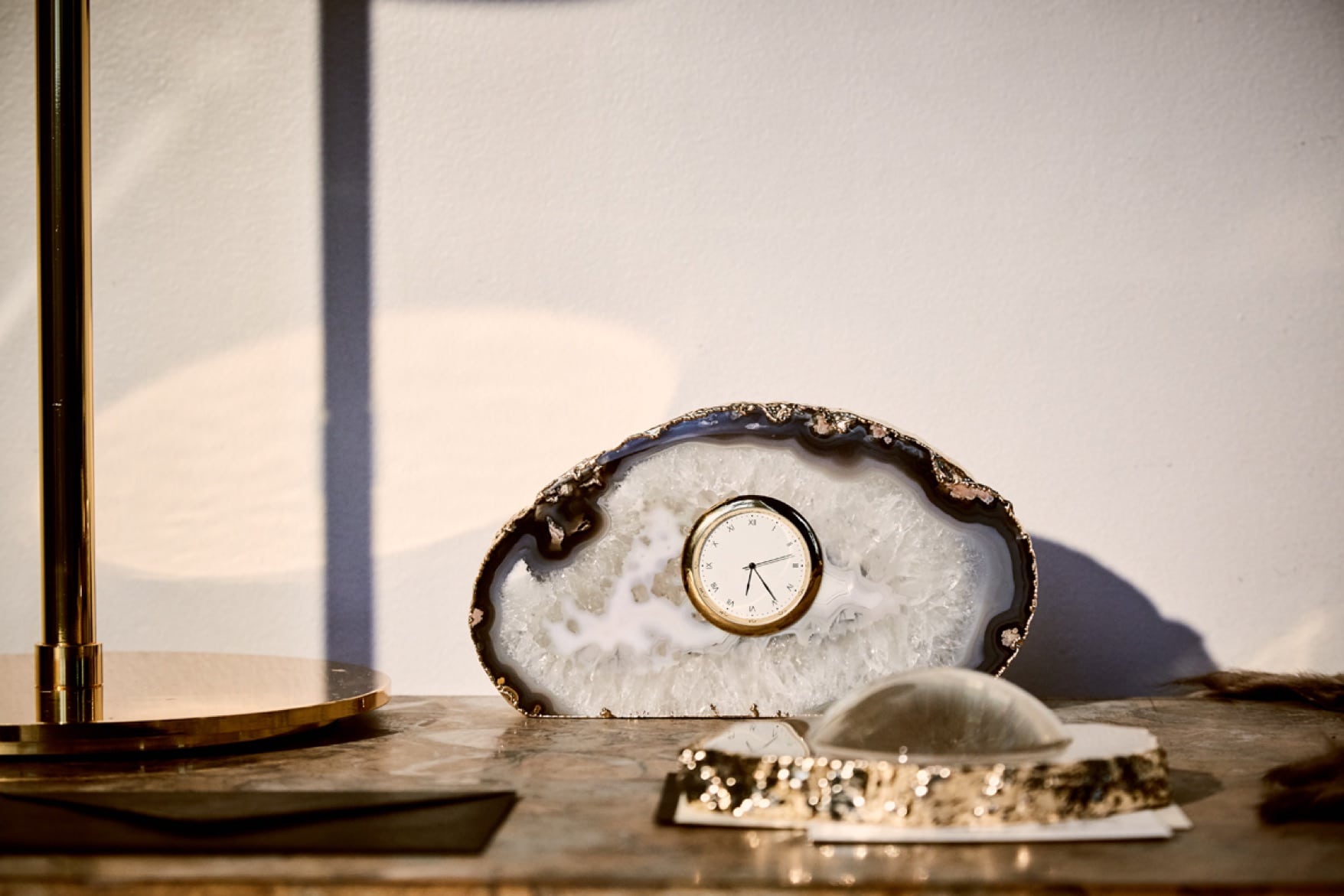Anna Rabinowicz, a product designer and the founder of ANNA by RabLabs, which fuses ancient, precious materials with cutting-edge designs for the home, told us about the impact of her parents’ World War II experiences on her Jewish upbringing and how different Jewish life is in the Bay Area compared to Manhattan, shared her parenting philosophies and the secret to inventory management, and kept coming back to the importance of openness.
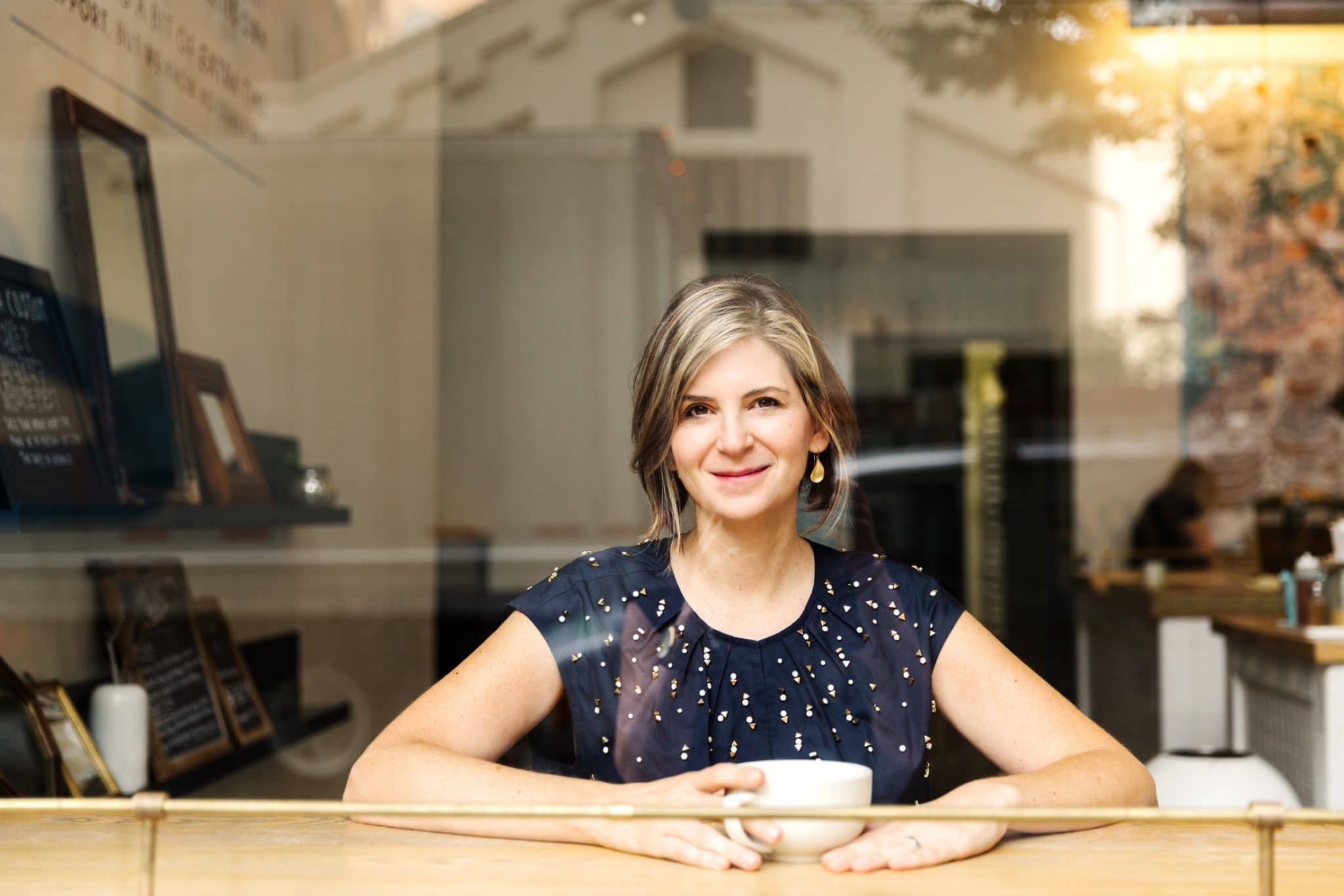
What is your earliest memory?
One of my earliest memories is my Grandpa Jack teaching me how to ride a bike. We were living in Florida in this apartment complex called The Millhopper and I had a beautiful pink bike with a big banana seat. I must have been six years old and my Grandpa said, “Well, it’s time for you to take the training wheels off and ride.” He was running behind me and then, suddenly, I was riding. I looked back and he was just standing there smiling. I will never forget how he looked, with the halo of sun behind him and this concrete jungle of an apartment complex in Gainesville, Florida. I love riding bikes, to this day. You’re as free as a bird.
What is the story behind your name?
My Mom was reading Anna Karenina while she was pregnant with me. This tragic heroine entered her thoughts and she thought Anna was a beautiful name. My Mom was born in Russia, in Bukhara, Uzbekistan, while her family was on the run during World War II. The Russian part of her really connected with the name, so she named me Anna. My middle name, Ceryl, is from Tsiryl, which was my great grandmother’s name. My last name is my father’s last name. Rabinowicz means “Son of Rabbi.” It’s like Smith in Israel.
How did Judaism play into your life growing up?
I was raised Conservative. My father was raised Orthodox – his father was black hat. I could sense the struggles my father had with his very intense, heavy religious background. Both of my parents are of this Holocaust survivor breed, so Judaism and the preservation of it is a very strong value for them. I was raised on the stories of my great grandmother, Tsiryl, who said to her father, “This is not good” – they were living in Poland – “I think we have to go, I want to take the family out of here.” He said, “Nothing is wrong, nothing’s going to happen, don’t worry.” She scraped together money and hired a sled and, in the middle of the night, she and just a couple of family members – her daughter, her daughter’s boyfriend, who became my grandfather, and a few other people – fled the town. Everybody who stayed behind died. Perished. My father’s family caught the last train out of Vienna before the Nazis rolled in. We have this tiny family, and I’m an only child.
I was raised to be a light that is carrying on the torch of what Judaism meant to my family.
Tell me about some of your family traditions.
Hanukkah was a beautiful holiday in our family. My parents always used to wrap up the tiniest of presents every night, like a little colored pencil or a soapstone cat whistle or this tiny, little one-inch tall owl sculpture made of glass that, year after year, I’m pretty sure my dad would just find, wrap up again, and give back to me. I would say, “This looks really familiar, didn’t you give this to me last year?” And he’d respond, laughing, “I don’t know about that…” For them, it was about the feeling of things. They wanted my upbringing to be imbued with the feeling of what was important about Judaism, which is tzedakah, being kind to other people, doing good in the world, being a good person, being kind to people who have less than you. Also, being tenacious and blazing your way in the world, which I think is a very important Jewish value. Plus, of course, education, which was the number one, top, everything. For my family now, everything is about the education of our kids. There’s nothing more important than that.
In our family, every Friday night we have Shabbat. We have a challah and light the candles and we say the prayers and sing the same songs that we sing every Friday. My kids are in Hebrew School and have a Hebrew teacher who comes to the house every week. I think they’re getting more instruction than I had when I was a kid. Especially where we live in Northern California, because the Jewish feeling is so hard to find, we really doubled down with traditions.
It makes our kids feel like there’s something special about them and they understand that they’re different from other kids.
How have the places you’ve lived shaped your relationship with Jewish life?
New York Judaism is easy. Everybody knows our traditions. My close friends from college who are not Jewish know our traditions, know what holidays we have, and celebrate our holidays with us, as we celebrate their holidays with them. They’re open and knowledgeable. It’s very easy to get holiday food and it’s very easy to feel holiday spirit. On Rosh Hashanah, when you walk on the Upper West Side, everybody’s walking and, on Shabbat, everybody’s walking, too. They have a menorah up in Madison Square Park, near where we still have an apartment. I’m not sure we would have emphasized so much Judaism if we were still living in New York.
There’s a smaller Jewish community in California, and those that are out here are less religious. It’s not that we’re super, super religious, but there’s a part of us that’s very traditional. All of our friends here are Reform, so it would have been easy to join the Reform synagogue, which is not far from our house, but we joined a Conservative synagogue, which is a decent drive and put our kids in school there. There’s no matzah anywhere, and there’s no place to buy pre-prepared Rosh Hashanah food, which is challenging for somebody like me who’s not a good cook. I relied on Citarella! It was my saving grace. They scheduled picture day on Rosh Hashanah in my kids’ school. It’s like, come on.
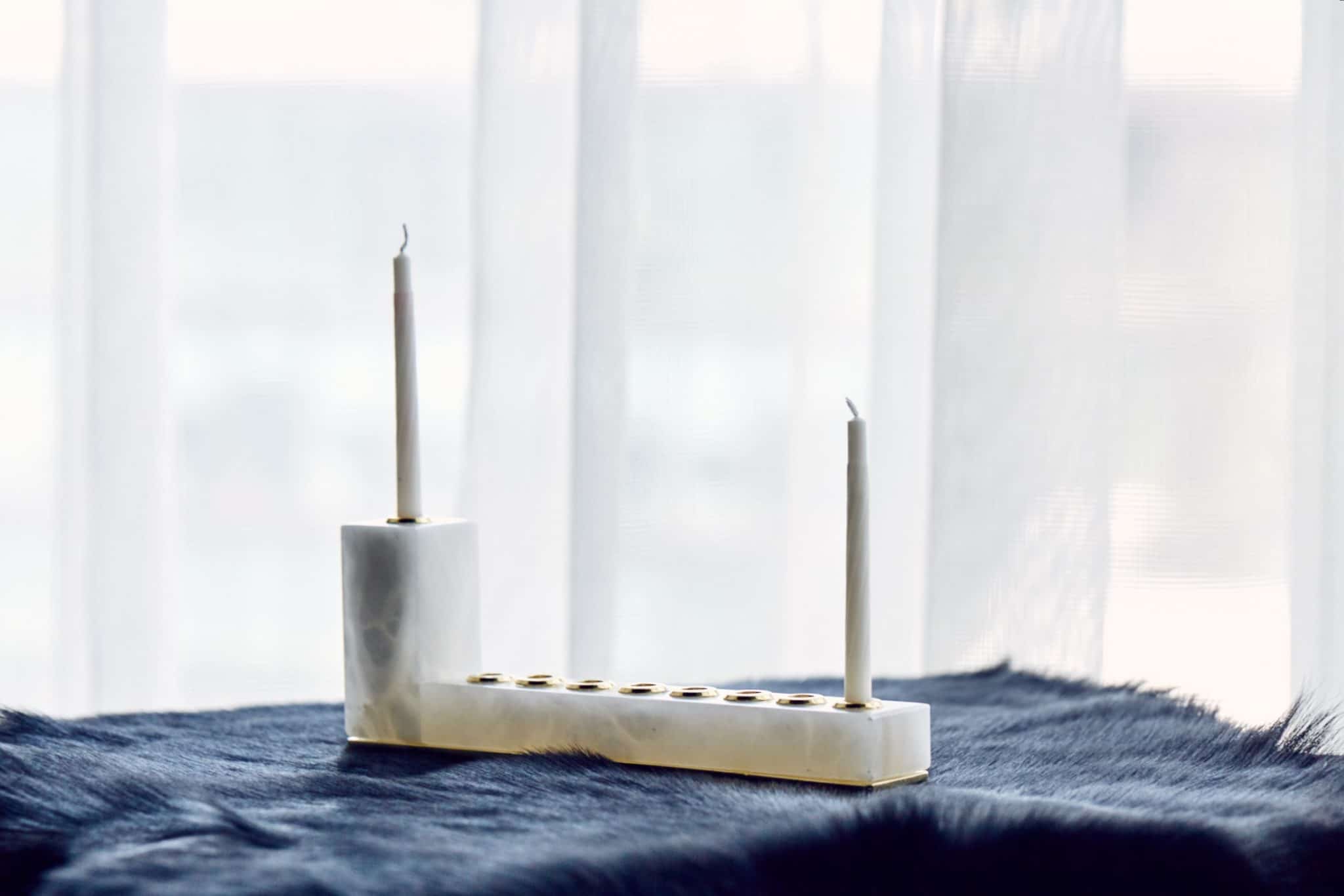
What do you most value in your friends?
I most value an intrinsic kindness and goodness, and, at the same time, a love of life and mischievousness, and a kind of individuality. My friends are not super straight-laced. There’s something a little bit odd about them. They tend to be the sort of people that can have fun in a paper bag in the middle of nowhere. They’re funny and a little bit strange and intrinsically kind. They’re open to different people and opinions.
What has surprised you the most about parenthood?
How interesting and fun and insightful and cool children are. The fact that it’s not so intimidating to be a parent, because you grow as a parent as they grow as children. They are who they are. We have two kids, we raised them the same way, they have the same parents, and they’re very different. That’s who they are as people. It’s our job to preserve the light of whoever they are, whoever they were born to be, and, at the same time, inculcate them with values that we believe in so that they really become great people and they can do good in the world.
What is your most treasured possession?
My most treasured possession is a box that my father made. He was a pediatric ophthalmologist, but he took this metalworking class in which he learned how to inlay metal and he made this box. He inlaid steel into the brass top in this beautiful pattern – it almost looks like Miró. There were a couple of years after we moved when I couldn’t find it and I was so devastated. It’s funny, because I’m a product designer but I don’t really care about things. We don’t own much furniture, I don’t have a fancy car. None of that is really important or interesting for me, but there are certain things that are sentimental that I like to have around.
Tell me about your inspiration for designing Judaica.
There’s a paucity of designs that are resonant in Judaica for people who are straddling this divide between traditional values and living in the modern world. There’s a great deal of opportunity in that space and the reason I designed the Brillante menorah is because I don’t have any menorahs that I like. I wanted a menorah that represented who I was, so, having this piece of alabaster from the last remaining alabaster quarry in Italy, made by Romano Bianchi, which is a company that’s been around for many generations, and then created in such a form that it feels fresh and modern and like the traditions that we’re creating, because we’re a blend of so many things. We’re a blend of who our parents were and who we are and what’s happening in this really modern world around us, imbued with all the tradition and all the culture of all the generations that came before us. The menorah is the first piece in that kind of exploration. And I’m personally excited by it. What I think joins us all together is this love of celebration of our traditions. If design can unite us in those ways, then designers are doing a good job. It’s all about openness, it’s how we blend our lives together and how open we are to the beauty of each other’s traditions. In this world, we can only survive if we’re open.
What do you love the most about what you do?
When we get samples in from designs that I’ve worked on. They’re the physical incarnation of things that I have dreamed of, and they arrive, and I can feel my heart singing. It’s so exciting and joyous because suddenly they’re there, and they’re right, and they’re fabulous, and it’s great. Or, when I see a big spread in one of our catalogues from one of our retailers, like the Barneys spread that just looks so amazing, and it’s like, “My God, we’ve worked so hard to get here!” Or, when I meet with our customers and they say, “I have your pieces in my house, I love entertaining with them” or “Oh my gosh, it was made in Italy by these artisans! Tell me the story of that.” I love visiting our artisans. We walk through these fields of alabaster in Volterra outside of Florence and it’s just insanely beautiful. Seeing the raw materials in their original state, working with folks who have generations of expertise.
Portrait photo by Julia Robbs, lifestyle photos by Stephane Malassine.
Thank you for visiting Arq!
Arq is no longer publishing new content. We hope you'll enjoy our archived posts.
